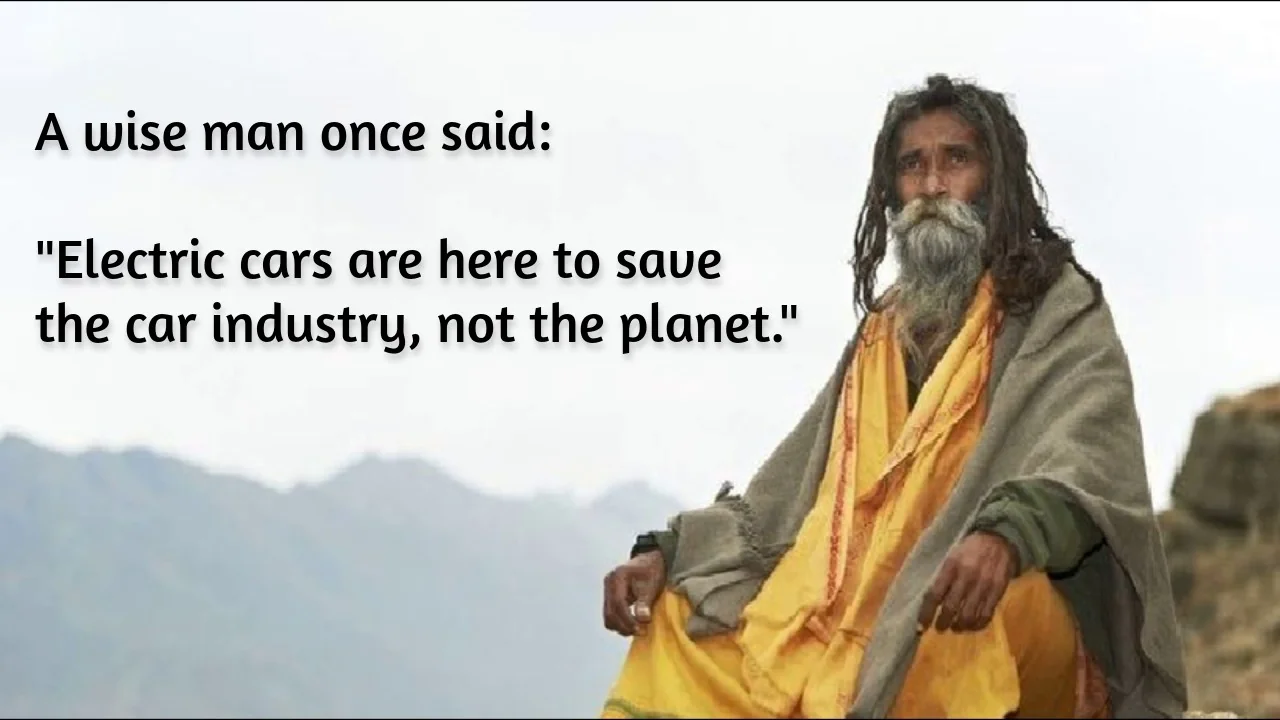Fuck Cars
A place to discuss problems of car centric infrastructure or how it hurts us all. Let's explore the bad world of Cars!
Rules
1. Be Civil
You may not agree on ideas, but please do not be needlessly rude or insulting to other people in this community.
2. No hate speech
Don't discriminate or disparage people on the basis of sex, gender, race, ethnicity, nationality, religion, or sexuality.
3. Don't harass people
Don't follow people you disagree with into multiple threads or into PMs to insult, disparage, or otherwise attack them. And certainly don't doxx any non-public figures.
4. Stay on topic
This community is about cars, their externalities in society, car-dependency, and solutions to these.
5. No reposts
Do not repost content that has already been posted in this community.
Moderator discretion will be used to judge reports with regard to the above rules.
Posting Guidelines
In the absence of a flair system on lemmy yet, let’s try to make it easier to scan through posts by type in here by using tags:
- [meta] for discussions/suggestions about this community itself
- [article] for news articles
- [blog] for any blog-style content
- [video] for video resources
- [academic] for academic studies and sources
- [discussion] for text post questions, rants, and/or discussions
- [meme] for memes
- [image] for any non-meme images
- [misc] for anything that doesn’t fall cleanly into any of the other categories
Recommended communities:
view the rest of the comments

Where I grew up there is zero chance anyone is willing to invest in a rail system. They would never make the money back and the local government would not be able to afford it. This is just ridiculous.
People who make this argument never seem concerned about how their local government can afford to maintain its suburban stroads and all the supporting infrastructure they require, which is all ludicrously more expensive per person than the same infrastructure in walkable/transit-oriented development. Not to mention the cost imposed on people living there who would not have to own a car, even in small rural towns and villages, if the development patterns were different.
Said development also can be, was always historically, and in many places still is, compact and transit-connected. Switzerland has an incredible train system connecting all of its tiny mountain villages with its cities, but even America used to have the same thing before the auto and oil industries hijacked the government. There's even a rail museum in Sacramento where you can learn about that history, and there's documentation of the compact, walkable downtowns we used to have before we bulldozed them to build parking lots.
You're probably right about the state of things in your hometown, as that is how things currently are in most of America, but your assumption that it has to be that way and would be more expensive if it was otherwise is ahistorical, contrary to economics, and defeatist.
You are the one who is making silly assumptions. My home town has HORRIFIC roads and sidewalks. They cannot afford to fix anything and the heat and dirt destroys everything. You do not understand what it's like in a rural town in the US.
What we should be focusing on instead of just saying FUCK CARS, is creating the best versions of each. If you put in a rail it's the best version. If you put in a bus, it must be the best version, and all cars should be electric.
I actually agree that public transportation should be the standard but I also live in a place we call reality and this black and white thinking is never going anywhere.
My guy, do you not hear yourself? Your home town has HORRIFIC roads and sidewalks, they cannot afford to fix anything and the heat destroys everything, but the solution is to dump more money into road infrastructure that costs way more and makes the heat worse due to the urban heat island effect?
And where did I engage in black-and-white thinking? Literally my entire point was that better things are possible if you look at places that do things differently than we do. If you think I was engaging in black-and-white thinking, then you're the one who didn't understand what I was arguing.
I never said anything about dumping money into more roads. You fucking guys just pull shit out of your ass to try to sound superior. LOL there is no URBAN HEAT ISLAND where I grew up. It's in the middle of a fucking desert. The roads do nothing to make it hotter. It's HOT. IT'S A DESERT.
The roads and sidewalks in my hometown are falling apart and in terrible shape and still NO ONE is going to do what you are suggesting. It's ridiculous and you are just wasting your breath trying to get people to abandon their cars. They are all farmers there and they need their vehicles.
Well, if your solution isn't to prioritize rail transport and reduce the amount of paved surface around, then I fail to see what else you could be suggesting besides further investing in roads.
That sounds like their problem, then.
Want to show me where I'm "trying to get people to abandon their cars" without qualification? Sure, I'll encourage someone who lives and works in San Francisco to get rid of their car, because the development patterns there already allow for it, and anybody who owns a big fuck-off truck but doesn't haul anything bigger than groceries can definitely get rid of that shit. But in suburbia, I have no problem with a person owning a car, nor does anybody else here: the system they inhabit has made alternatives nonviable. Once development patterns shift to accommodate alternatives, once going car-free is a viable option, then you talk about that. Nobody here argues for individual solutions to our systemic problems.